
Alumni College Archives
The history of the W&L Alumni College is best displayed through examples of faculty teaching in our programs.
-
Campus Programs
- Institute for Honor Symposium: Addiction and Alienation in America
- The Tom Wolfe Weekend Seminar: The Rabbit Hutch
- The Imitation Game: Artificial Intelligence and the Human Position
- Law and Literature Weekend Seminar: Take My Hand
- Accommodations and Dining
- Additional Program Information
- Past Programs
- Travel Programs
- Online Programs
Alumni College Archives
Below is a representation of our faculty and distinguished guest speakers at work over the years in a variety of W&L classrooms. Each of the talks below reveals the adventure of lifelong learning before a live audience. The subjects are diverse, as are the personalities, interests and accomplishments of our presenters.
Lifelong Learning
Lifelong Learning
- P: 540-458-8723
- E: lifelong@wlu.edu
-
Lifelong Learning
Washington and Lee University
204 W Washington Street
Lexington, VA 24450
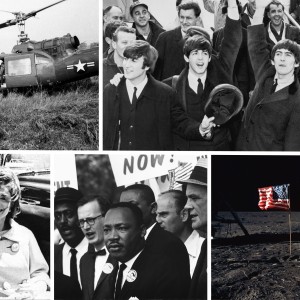
The 1960s: A Pivotal Decade?
(07/03/2023) – Professor of History Molly Michelmore presents the opening lecture for “America in the 1960s,” an Alumni College program offered by the Office of Lifelong Learning. Michelmore begins her overview of the 1960s by identifying earlier events and forces that shaped the decade, like the continuation of mass suburbanization that started in the mid-1940s and the coming of age of Baby Boomers born in the prior two decades. As a transitional period in American history, the 1960s stand out because of cultural phenomena as varied as Beatlemania and generational marketing, important social movements like the civil rights movement and anti-war protests in response to U.S. involvement in Vietnam, and ongoing political turmoil punctuated by the assassinations of President John F. Kennedy, Senator Robert Kennedy, and civil rights leader Martin Luther King, Jr. The decade ushered in several trends that remain pertinent today, including increasing political polarization and decreasing confidence in the idea of American exceptionalism.
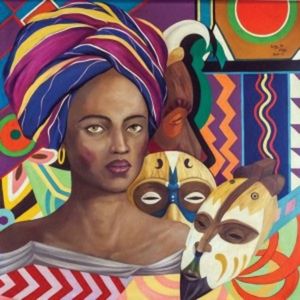
The Soil and Seeds of Harlem Renaissance Art
(07/25/2022) – Lena Hill, University Provost and Professor of English and Africana Studies, presents the first session from the Alumni College’s “Literature, Music, and Art of the Harlem Renaissance.” Hill explains how during the first few decades of the twentieth century the Harlem Renaissance represented one of the moments in American history when social forces, popular culture, and political life coalesced to form new national expression and new artistic achievement. At the end of World War I and continuing into the Great Depression period of the 1930s, African-American artists created a community of art and cultural achievement that was remarkable. Fueled by the Great Migration of African-American peoples from the rural South into the great cities of the Northeast and Midwest, the Harlem Renaissance brought together literature, music, visual art, dance, and other art forms in an explosion of creativity.

Emily Dickinson and Robert Frost: Poets of the Neighborhood
(07/21/2022) – Jim Warren, S. Blount Mason, Jr. Professor of English Emeritus, presents the first session from the Alumni College’s “Poets of the Neighborhood: Emily Dickinson and Robert Frost.” The poetry of Emily Dickinson (1830-1885) and Robert Frost (1874-1963) is familiar to us not merely because it is distinctively American but also because it is local. While New England was their common ground, their most frequent subjects were found in their neighborhoods. Dickinson’s poetic perceptions, Warren explains, draws upon her immediate surroundings, the birds and plants of her backyard. With Frost, local observation of walls, paths, and woods grounds meditation, memory, and reflection. As different as they are in style, vision, and voice, Emily Dickinson and Robert Frost are good neighbors to one another, and also to the natural world they explore in striking ways.
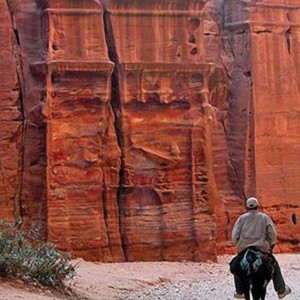
Perspectives on the Middle East
(07/11/22) – Seth Cantey, Associate Professor of Politics and core faculty member of the Middle East and South Asian Studies program at W&L, presents the first session from the Alumni College’s “Perspectives on the Middle East.” Cantey opens with a class exercise on defining what we mean by “the Middle East,” tracing how the region received its name from Western powers. The region continues to attract our interest because of ongoing internal conflict and problematic relations with the West. But there is far more to this extraordinary region, Cantey argues, than conflict. History in the Middle East runs deep, and the variety of cultures, ethnicities, and languages is vast. Islam is the dominant religion, but it means different things to different people in different places. The roles of women are constantly changing, and women are now competing with men across a range of societal spheres. What we in the West must understand is the diverse cultural and political complexities of the Middle East as well as some encouraging developments.
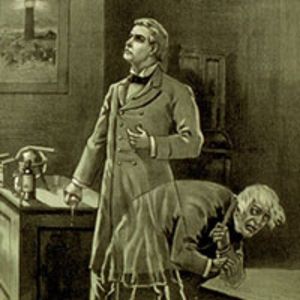
The Faces of Evil: Contexts and Personae
(07/25/2019) – Mikki Brock, Associate Professor of British History, presents the first session from the Alumni College's "Witches, Monsters, and Madmen: Our Fascination with Evil." Of all the topics that have flummoxed and fascinated human societies, few have been more powerful or pervasive than evil. Evil has been conceptualized as a supernatural force, personified by Satan, and as a profoundly human characteristic that reveals the inner demons of our natures. From cases of demonic possession in the early modern era to the inhumane atrocities of the Third Reich, the Western world has been obsessed with the questions of the nature and cause of evil.
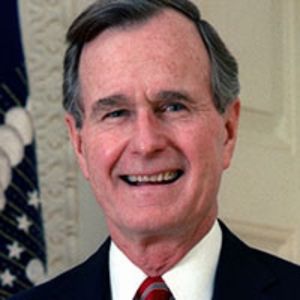
Perspectives on the Bush 41 Presidency: Character and Consequence
(07/22/2019) – Bob Strong, the William Lyne Wilson Professor of Political Economy, presents the first session from the Alumni College's "Bush 41: The Pivotal Presidency." Bush was a serious challenger to Reagan for the presidency in 1980. After he lost the nomination, he accepted the second spot on the ticket and loyally served as Reagan's vice president. When he ran again in 1988, Republicans worried that he was not really a Reagan conservative. It did not help that Newsweek called him a wimp. After winning hard-fought primaries and a controversial general election, Bush confronted large opposition majorities in Congress and deficits that deadlocked domestic legislation. His presidency also faced a dramatically changing world. Chinese students demanded political freedom in Tiananmen Square, Poland held free and fair elections, Hungary opened its international borders, Czechoslovakia made a poet and former political prisoner their new president, the Berlin Wall came down, and the Soviet Union collapsed. In 1989, Bush approved the largest American military operation since Vietnam to overthrow the government of Manuel Noriega. A year later he sent a vastly larger military force into the Persian Gulf to oppose Iraq's invasion of Kuwait.
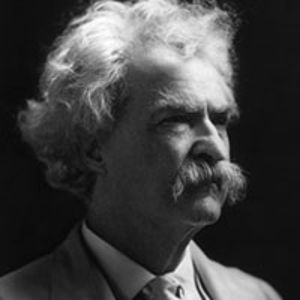
Sam Clemens & Mark Twain: Life and Times of a Mysterious Twin
(07/15/2019) – Jim Warren, Professor of English Emeritus, presents the first session from the Alumni College's "The Life and Times of Mark Twain." If you search for the works of Mark Twain in any public library, look under the letter "C," for Clemens, Samuel Langhorne (1835-1910). One of the most beloved of American writers, Mark Twain was actually an invention. When we think of Twain, we imagine the wry humorist in the white suit, a celebrity stage performer reading his works and telling his stories to audiences in the American era he called "the Gilded Age." But we could also imagine Twain and Clemens as twins, a man and an image that are not always distinguishable from one another.
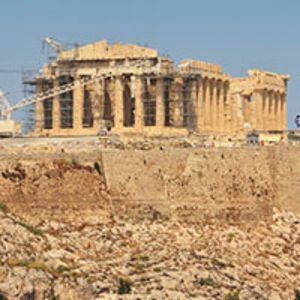
The Decline of Tyranny and the Origins of Democracy at Athens
(07/01/2019) – Kevin Crotty, the J. Donald Childress Professor of Classics, presents the first session from the Alumni College's "The Golden Age of Athens." One of the most astonishingly creative periods in human history occurred in a small city-state, Athens, in the fifth and fourth centuries before Christ. The very smallness of this city-state may have contributed to the intensity of its creativity and the splendor of its achievements in tragedy, comedy, architecture, sculpture, philosophy and history. Western culture has been pervasively indebted to these achievements ever since. And yet, the Athenians remain in many ways enticingly alien. Their religion, their laws, even their brand of democracy, while all central to their achievements, can't help but strike modern students as unfamiliar and curious.
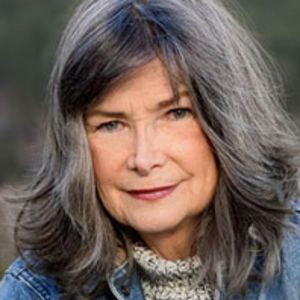
Where the Crawdads Sing: A Safari into Fictive Realms
(04/26/2019) – To view this video, please contact the Office of Lifelong Learning to request the URL and password. This year marks the 16th annual Tom Wolfe Weekend Seminar, W&L's ultimate book club. Sponsored by the W&L Class of 1951 in honor of their late classmate Tom Wolfe, the program honors a distinguished writer and observer of the American scene. Last year's program featured Hampton Sides and his best-selling "In the Kingdom of Ice," a narrative history of the USS Jeannette's ill-fated attempt on the North Pole. This year, we turn to Delia Owens' critically acclaimed debut novel, "Where the Crawdads Sing," described by The New York Times Book Review as "Painfully beautiful . . . At once a murder mystery, a coming-of-age narrative, and a celebration of nature."
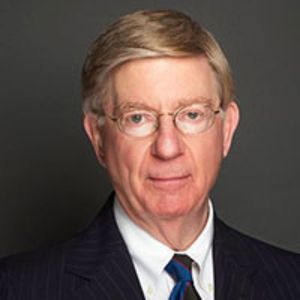
Lowering the Temperature, and the Stakes, of Politics
(03/01/2019) – George F. Will's newspaper column has syndicated in the Washington Post since 1974. Today, it appears twice weekly in more than 440 newspapers. In 1976, he became a regular contributing editor of Newsweek magazine, for which he provided a bimonthly essay until 2011. In 1977, he won a Pulitzer Prize for commentary in his newspaper columns. In June 2019, Will will release his most recent work, "The Conservative Sensibility." Altogether, eight collections of Will's Newsweek and Washington Post columns have been published, the most recent being "One Man's America: The Pleasures and Provocations of Our Singular Nation" (2008). In 1981, he became a founding panel member on ABC television's "This Week" and spent over three decades providing regular commentary. After that, he spent three years with Fox News, where he appeared regularly on "Special Report" and "Fox News Sunday." Will is now a regular contributor to MSNBC and NBC News.
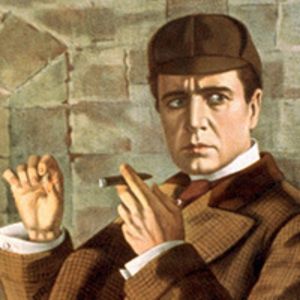
The Art of Detective Fiction: A Writer's View
(07/09/2018) – Ted Blain '74 presents the first session from Alumni College's "Whodunits: The Art of Detective Fiction." No popular literature has a more dedicated following than the mystery novel. Foremost among the reasons for its popularity is that mystery fiction provides the entertainment of a well-constructed puzzle, one that challenges the reader to discover whodunit. Within that genre, detective fiction offers the dark and gnarled pleasure of a crime at its center, one that requires a detective-the reader's friend and persona-to solve the puzzle. The best examples also tell a good story with provocative dialog, interesting characters, and a clear eye to setting and arresting detail. Most of all, they are simply fun intellectually.
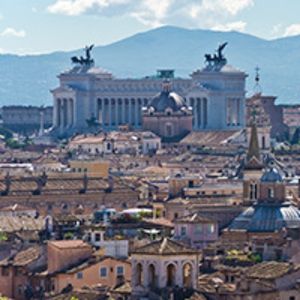
A Bird's-Eye View: Rome and Its Past
(07/16/2018) – George Bent, the Sidney Gause Childress Professor of Art, presents the first session from the Alumni College's "The Eternal City: Rome through the Centuries." With some 28 centuries of recorded history, Rome is one of Europe's oldest continuously inhabited cities. But what makes Rome venerable is not so much its age but what the Eternal City has witnessed through the centuries.
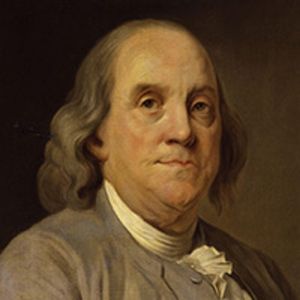
Approaching Benjamin Franklin: Contexts and Personae
(07/23/2018) – Marc Conner, Provost and the Jo and James Ballengee Professor of English, presents the first session from Alumni College's "The Life and Times of Benjamin Franklin." Benjamin Franklin (1706-1790) is arguably the most beloved and the most accessible of the Founding Fathers. A printer, publisher, and postmaster by trade and an inventor and scientist by avocation, a keen observer of his times and his fellow citizens, a tireless writer given to wit and sound reasoning, Franklin is especially revered for his service to his countrymen and countrywomen at the time of their greatest need, the founding of the republic.
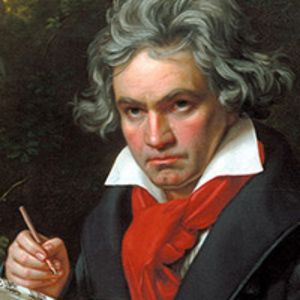
Ludwig van Beethoven: An Overview of the Late Style
(07/26/2018) – Tim Gaylard, Professor of Music, presents the first session from Alumni College's "Final Thunder: Beethoven's Late Music." Beethoven, the pivotal composer in musical history, continues to fascinate us despite the two centuries that distance us from his lifetime. Somehow he reaches us emotionally, and his music continues to speak with great power and strength. In 2006 we looked at his entire life and output. This time we will focus on the works of his late period.
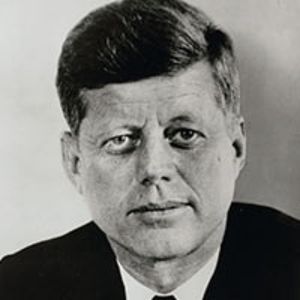
The Presidency of John Fitzgerald Kennedy - An Overview
(07/20/2017) – Barry Machado, professor of history emeritus, presents "The Presidency of John Fitzgerald Kennedy: An Overview." This lecture is part of the Alumni College's summer program, "Camelot Reconsidered: The Presidency of John Fitzgerald Kennedy."
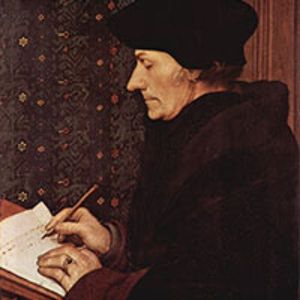
From Breughel to Steen: The Painting of Everyday Life
(07/17/2017) – George Bent, The Sidney Gause Childress Professor of Art, presents "From Breughel to Steen: The Painting of Everyday Life." This lecture is part of the Alumni College's summer program, "Rembrandt and the Dutch Golden Age."
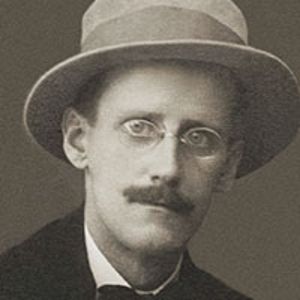
James Joyce and the Writing of Dublin with Marc Conner
(07/10/2017) – Marc Conner, provost and the Jo and James Ballengee Professor of English, presents "James Joyce and the Writing of Dublin." This lecture is part of the Alumni College's summer program, "The Ireland of Yeats and Joyce."
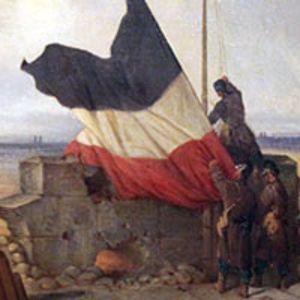
The Rise of the Third Republic
(06/26/2017) – Sarah Horowitz, associate professor of history at W&L, presents "The Rise of the Third Republic: Political, Social, and Cultural Contexts." This lecture is part of the Alumni College's summer program, "La Belle Épogue: France and the Rise of Modernism."
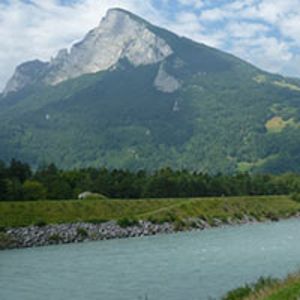
The Rhine with Lamar Cecil
Summer 2017 – William R. Kenan Jr. Professor of History Emeritus Lamar Cecil provides a history of the Rhine and its importance in German culture and identity.
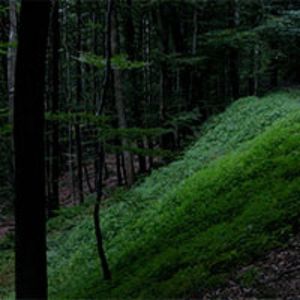
The German Forest with Lamar Cecil
Summer 2017 – William R. Kenan Jr. Professor of History Emeritus Lamar Cecil delves into the importance of the forest in German identity.

The European Refugee Crisis: The Search for a Moral Response
(11/04/2016) – Peter Wittig, German Ambassador to the United States, will deliver the keynote address at Washington and Lee University's Institute for Honor Symposium "The European Refugee Crisis: The Search for a Moral Response" on Friday, Nov. 4 at 4 p.m. in Lee Chapel. Wittig will speak on "German Policy Toward the European Refugee Crisis." His lecture is free and open to the public.
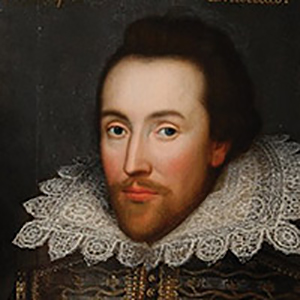
Folly, Madness, Nothing: "The Homelessness of King Lear"
(10/15/2016) – Marc Conner, interim provost and the Jo M. and James Ballengee Professor of English, presents an Alumni College lecture on Shakespeare's King Lear.
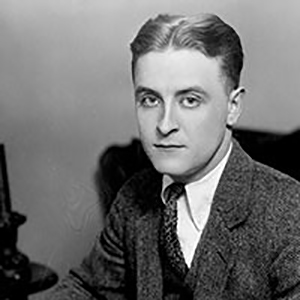
This Side of Paradise: Fitzgerald's Romantic Imagination
(07/18/2016) – Marc Conner, interim provost and the Jo M. and James Ballengee Professor of English, presents an Alumni College lecture, "This Side of Paradise: Fitzgerald's Romantic Imagination."
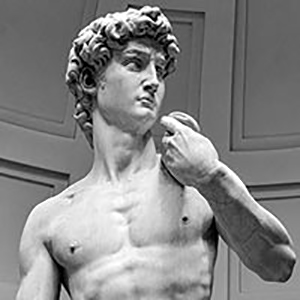
Into the Inferno
(07/11/2016) – David Peterson, professor and chair of the department of history, presents an Alumni College lecture, "Into the Inferno: The Rise of Despots And the Crisis of Communal Independence."
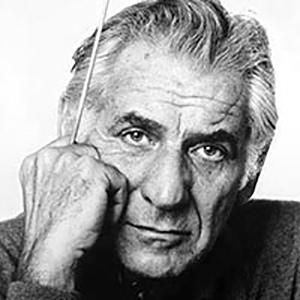
Leonard Bernstein: An Overview of the Life and Career
(7/7/2016) – Timothy Gaylard, professor of music, presents an Alumni College lecture, "Leonard Bernstein: An Overview of the Life and Career."
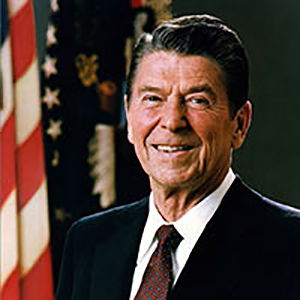
Goldwater, Reagan and The Origins of Modern American Conservatism
(06/30/2016) – Molly Michelmore, Associate Professor of History, presents an Alumni College lecture, "'The Speech': Goldwater, Reagan and The Origins of Modern American Conservatism."
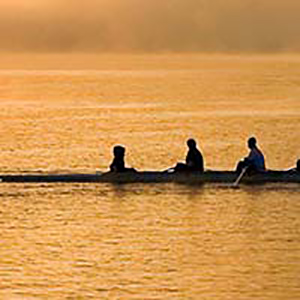
The Boys in the Boat
(04/22/2016) – This year marks the 13th annual Tom Wolfe Weekend Seminar, W&L's ultimate book club. Sponsored by the W&L Class of 1951 in honor of classmate Tom Wolfe, the program features a distinguished writer and observer of the contemporary American scene. Last year's program featured Jesmyn Ward and her National Book Award-winning novel, Salvage the Bones. This year's seminar will feature Daniel James Brown and his best-selling work of non-fiction, The Boys in the Boat. Other works by Brown include another best-selling book, The Indifferent Stars Above: The Harrowing Saga of a Donner Party Bride.

Tweetstorms: Facts, Factoids, and Myths
(03/19/2016) – Toni Locy, professor of journalism and mass communications at Washington and Lee University, addresses the press and the possibility of balance in the Age of Obama.
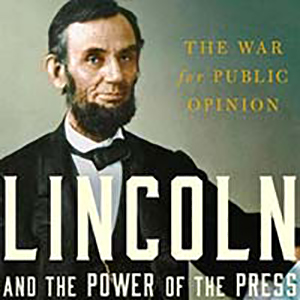
Lincoln and the Press During Wartime
(03/19/2016) – Harold Holzer, winner of the 2015 Lincoln Book Prize for Lincoln and the Power of the Press: The War for Public Opinion, speaks on Lincoln and the press during wartime.
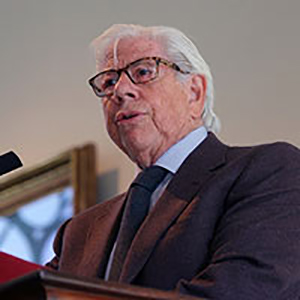
The Rise of Investigative Journalism and the Modern Presidency
(03/18/2016) – The Institute for Honor Symposium 2016 features Pulitzer Prize-winning investigative reporter and acclaimed author of All the President's Men and A Woman in Charge: The Life of Hillary Rodham Clinton, Carl Bernstein, as he delivers a keynote address on the rise of investigative journalism during the modern presidency.
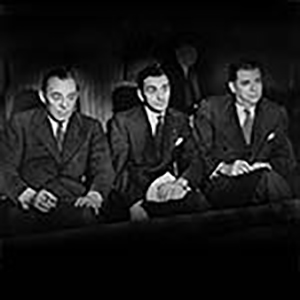
Rodgers and Hammerstein: An Overview of the Musicals
(06/25/2015) – An introductory look at the collaboration of composer Richard Rodgers and lyricist Oscar Hammerstein II, considering the traits of their greatest works, which contributed to the development of the American musical.

Shaping Russian History Prior to Gorbachev
(06/29/2015) – Richard Bidlack's talk describes several major themes that have shaped Russia over the many centuries since the start of its recorded history. These ideas and patterns of development acted as catalysts in the collapse of the Soviet Union and have also influenced profoundly Russia’s resurgence up to the present day.
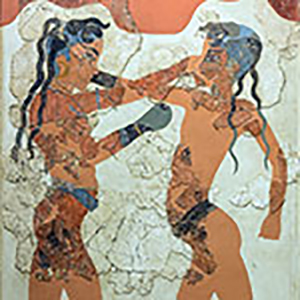
Mediterranean Civilizations: In Broad Strokes
(07/06/2015) – In his talk, Kevin Crotty will explore some of the reasons why historians have begun to look at the Mediterranean Sea as a persisting historical unit in its own right, which underlay and helped shape the tumultuous events of ancient history. He will offer a brief overview of the somewhat unwieldy amount of time involved (some two millennia’s worth of history), and will look at a specific anecdote from late Antiquity rich in significance for the week’s themes.
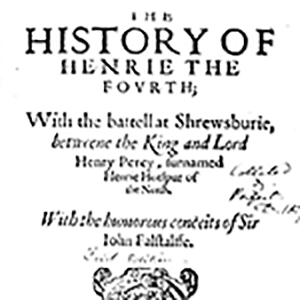
Approaching Shakespeare’s King
(07/14/2015) – In Marc Conner's lecture, titled “Approaching Shakespeare’s Kings,” Marc will talk about how the rise of Shakespeare’s theater and the reign of his monarchs Elizabeth and James influenced one another and indeed how monarchy and drama are inseparable for Shakespeare. He’ll talk about the conventions of the Shakespearean stage and how they allowed Shakespeare to engage his audience in the most fundamental political beliefs of the day. Finally Marc will delve into his historical tragedy Richard II to see how Shakespeare gives life to the concept of kingship in his plays.
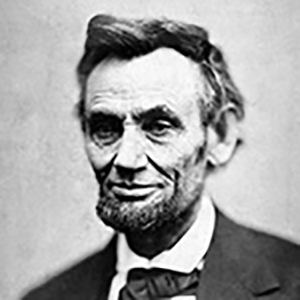
Lincoln and the Founders: Slavery, War, the New Birth of Freedom
Richard Brookhiser is the author most recently of "Founders’ Son: A Life of Abraham Lincoln" (Basic Books, 2014), and of eight books on revolutionary America: "Founding Father, Rediscovering George Washington;" "Rules of Civility—the 110 Precepts That Guided Our First President in War and Peace;" "Alexander Hamilton, American;" "America’s First Dynasty: The Adamses 1735-1918;" "Gentleman Revolutionary: Gouverneur Morris, the Rake Who Wrote the Constitution;" "What Would the Founders Do? Our Questions, Their Answers;" "George Washington on Leadership," and "James Madison." He is author and host of two films by Michael Pack: "Rediscovering George Washington" (PBS, 2002) and "Rediscovering Alexander Hamilton" (PBS, 2011). He was the historian curator of “Alexander Hamilton: The Man Who Made Modern America,” a 2004 exhibition at the New-York Historical Society. In 2008 he was awarded the National Humanities Medal. Brookhiser is a senior editor of National Review.
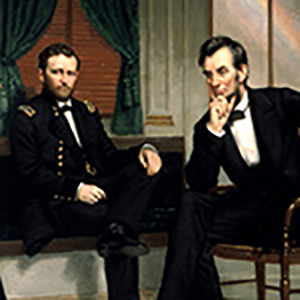
Lincoln and Grant: Achieving the Peace
(03/21/2015) – Henry William Brands was born in Oregon, went to college in California, sold cutlery across the American West and earned graduate degrees in mathematics and history in Oregon and Texas. ~ He taught at Vanderbilt University and Texas A&M University before joining the faculty at the University of Texas at Austin, where he holds the Jack S. Blanton Sr. Chair in History. He teaches history and writing to graduate students and undergraduates. ~ He writes on American history and politics, with books including "The Man Who Saved the Union," "Traitor to His Class," "Andrew Jackson," "The Age of Gold," "The First American" and "TR." Several of his books have been bestsellers; two, "Traitor to His Class" and "The First American," were finalists for the Pulitzer Prize. ~ He lectures frequently on historical and current events and can be seen and heard on national and international television and radio. His writings have been translated into Spanish, French, German, Russian, Chinese, Japanese, Korean and Ukrainian.
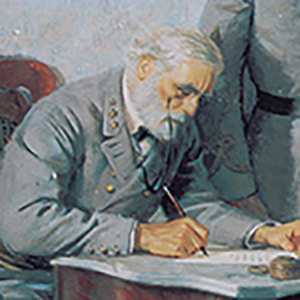
Robert E. Lee: Honor in Defeat
(03/21/2015) – Gary W. Gallagher is the John L. Nau III Professor in the History of the American Civil War at the University of Virginia. He is the author or editor of more than thirty books, including "The Confederate War" (Harvard, 1997), "Lee and His Generals in War and Memory" (LSU, 1998), "Causes Won, Lost, and Forgotten: How Hollywood and Popular Art Shape What We Know About the Civil War" (UNC, 2008), "The Union War" (Harvard, 2011), and "Becoming Confederates: Paths to a New National Loyalty" (Georgia, 2013). He serves as editor of two book series at the University of North Carolina Press ("Civil War America," with more than 100 titles date, and "Military Campaigns of the Civil War," with 10 titles) and has participated in more than forty television projects in the field. Professor Gallagher was the Times-Mirror Foundation Distinguished Fellow at the Henry E. Huntington Library in San Marino, California, in 2001-2002, recipient of the Cavaliers' Distinguished Teaching Professorship for 2010-2012 (the highest teaching award conveyed by the University of Virginia), and the Philip Merrill Award for Outstanding Contributions to Liberal Arts Education from the American Council of Trustees and Alumni in 2013. Active in the field of historic preservation, he was president from 1987 to mid-1994 of the Association for the Preservation of Civil War Sites (an organization with a membership of more than 12,500 representing all 50 states). He also served as a member of the Board of the Civil War Trust and has given testimony about preservation before Congressional committees on several occasions.
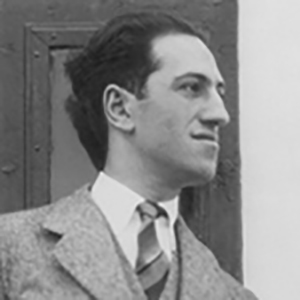
George Gershwin: The Man and the Music
(06/30/2014) – A presentation by W&L Professor Timothy Gaylard. Gaylard is Professor of Music at Washington and Lee, where he has been a member of the faculty since 1984. He was also Chair from 2000 until 2008, and again in 2012-2013. A native of Ottawa, Tim received his B. A. and B. Mus. degrees from Carleton University in Canada, and has associateship diplomas from the Royal Conservatory of Music. He studied at the Mozarteum in Salzburg, Austria, and obtained his M. A. and Ph. D. in musicology from Columbia University. He has performed extensively as a pianist in both Canada and the United States.
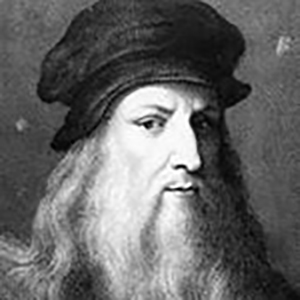
Leonardo da Vinci: A Restless Life
(07/30/2014) – A presentation by W&L Professor George Bent. George is the Sidney Gause Childress Professor in the Arts and Head of the Department of Art and Art History at Washington and Lee University. He received his Bachelor of Arts degree from Oberlin College in 1985 and his Ph.D. in Art History from Stanford University in 1993. He came to Washington and Lee University in that year and has been a member of the faculty ever since. Professor Bent teaches courses in Medieval, Renaissance, and Baroque art history, and specializes in Italian art and culture from 1250 to 1450. He has written about artistic production, the function of liturgical images, and institutional patronage in early Renaissance Florence and in 2006 published Monastic Art in Lorenzo Monaco's Florence, a book that focuses on these subjects. He co-founded Washington and Lee's interdisciplinary program in Medieval and Renaissance Studies, chaired it (and the Art Department) from 2000 to 2003, and served as Associate Dean of the College from 2003-2006. A two-time holder of Fulbright grants to Italy, he has recently completed a series of lectures on Leonardo da Vinci for The Great Courses Company.
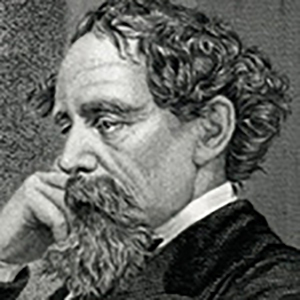
Charles Dickens and the 19th-century British Novel
(07/07/14) – A presentation by W&L Professor Marc Conner. Marc is the Jo M. and James M. Ballangee Professor of English and the Associate Provost at Washington and Lee. He took degrees in English and Philosophy at the University of Washington (Phi Beta Kappa, summa cum laude), followed by the M.A. and Ph.D. degrees in English at Princeton University, and has taught at Princeton and at the University of Notre Dame. His books include The Aesthetics of Toni Morrison: Speaking the Unspeakable (2000), Charles Johnson: The Novelist as Philosopher (2007), both published by the University Press of Mississippi, and The Poetry of James Joyce Reconsidered (2012) from Florida, as well as a 24-lecture course for The Great Courses titled How to Read and Understand Shakespeare (2013). In addition, Marc has published dozens of essays and book reviews on American and Irish Modernism. Marc directs a spring term study abroad program to Ireland, which he has run six times since 2000. He is the co-founder of the Program in African-American Studies, and in 2009 received the Anece McCloud Excellence in Diversity Award. His teaching interests include American, African-American, and Irish literature, Shakespeare, literature and philosophy, and the Bible as English literature, and his scholarly interests deal with the intersections of literature, philosophy, and religion. In 2004 Marc received the Ring-Tum Phi Award for teaching excellence at Washington and Lee.
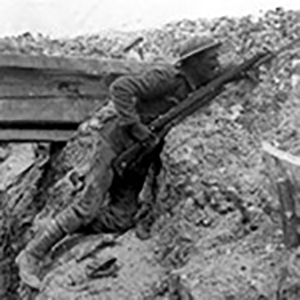
The Road to War: 1914-1917
(07/14/2014) – A presentation by W&L Professor Barry Machado. Barry was born in Fall River, Massachusetts in 1944 and is currently living in retirement in Lake Geneva, Wisconsin. He received his B.A. from Dartmouth College as well as an M.A. and Ph.D. in U.S. diplomatic history from Northwestern University, where he also taught for a year. His dissertation was directed by Richard W. Leopold. For 34 years, 1971-2005, he taught recent U.S. history, U.S. foreign and military affairs, and the history of American business in the history department at Washington and Lee University. He has served as a consultant and director of research for the Lilly Endowment Program as well as the Marshall Undergraduate Scholarship Program of the George C. Marshall Research Library. From 2003-2005 he was a member of the Editorial Advisory Board of The Journal of Military History to which he also contributed book reviews. Throughout his career he was a member of the Organization of American Historians (OAH) and the Society of Historians of American Foreign Relations (SHAFR). He has delivered papers and chaired panels at various professional meetings and conferences on the subjects of the Cold War and American Business Abroad. His most recent publications and professional activities include: "The Kennedy Tapes: Inside the White House During the Cuban Missile Crisis," The Journal of Military History, 67:1 (January 2003), 295-97; "History, Memory and Holes in the Wall," in Malcolm Muir and Mark Wilkinson, eds., The Most Dangerous Years: The Cold War, 1953-1975 (2005); and In Search of a Usable Past: The Marshall Plan and Postwar Reconstruction Today (2007).
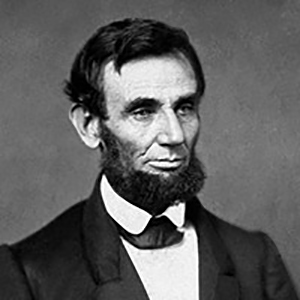
Washington and Lincoln: Honor and the American Presidency
(7/29/14) – The inaugural lecture by the new Class of 1960 Professor, Lucas Morel, Professor of Ethics and Politics at W&L, will be the closing lecture of the Institute for Honor Symposium's Saturday session. This year's symposium is titled "George Washington: Leadership with Honor." Morel's talk will conclude the program's examination of how Washington's leadership was informed by his understanding of honor's role in establishing and perpetuating self-government. In "George Washington and Abraham Lincoln: Honor and the American Presidency," Morel will address how honor shaped Washington's role as founder and Lincoln's role as preserver of the American republic.
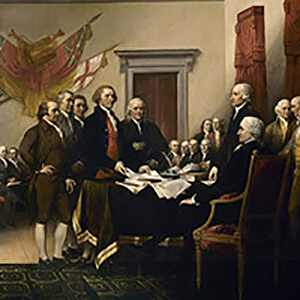
Ideas of Honor and Virtue among the American Founders
(03/29/14) – Craig Bruce Smith, instructor of American history at Brandeis University, will speak on George Washington and the history of honor. His dissertation is entitled "Rightly to Be Great: Ideas of Honor and Virtue among the American Founders."
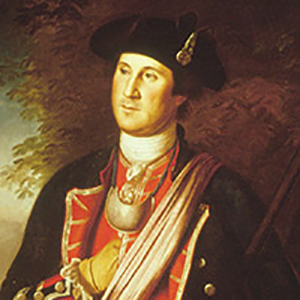
George Washington and the Ethics of Leadership
(03/28/2014) – David Hackett Fischer, the University Professor and Earl Warren Professor of History at Brandeis University, will deliver the keynote address at the Institute for Honor Symposium "George Washington: Leadership With Honor"
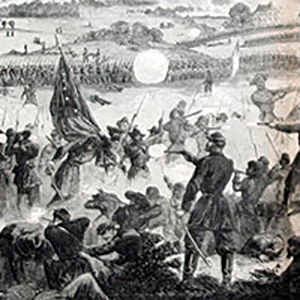
The Loss of Jackson and the Battle of Gettysburg
(07/02/2013) – A presentation by Civil War historian James E. (Bud) Robertson. "Bud" is a longtime friend of the W&L family and has spoken often at alumni colleges. He is Alumni Distinguished Professor Emeritus at Virginia Tech, where he taught Civil War history to an estimated 22,000 students over a 44-year period. Bud obtained his B.A. degree from Randolph-Macon College and his graduate degrees from Emory University. His 1997 biography of "Stonewall" Jackson was the base for the Warner Bros. mega-movie, "Gods and Generals." His most recent work, "The Untold Civil War" was published by National Geographic Society. In May of this year, Bud received The Virginius Dabney Award, the highest recognition that the Museum of the Confederacy bestows for excellence in historical contributions.
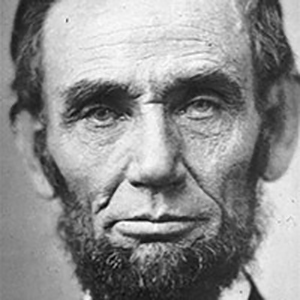
Lincoln and the Gettysburg Address
(07/05/2013) – A presentation by W&L Professor Lucas Morel. The Lewis G. John Term Professor and head of the Politics Department, Lucas arrived at W&L in July 1999 from Siloam Springs, Arkansas, where he had taught from 1994 to 1999 at John Brown University and the University of Arkansas-Fayetteville. He received his education at Claremont McKenna College and the Claremont Graduate School. His teaching and research interests are American government, political theory, Abraham Lincoln, and black American politics. He also serves as a pre-law advisor for the undergraduate university at large. Lucas is president of the Abraham Lincoln Institute, trustee of the Supreme Court Historical Society, and board member of the Abraham Lincoln Association. In the 2008-09 academic year, he was the Garwood Visiting Research Fellow at the James Madison Program in American Ideals and Institutions at Princeton University. He also teaches in the Summer Masters Program in American History and Government at Ashland University in Ashland, Ohio, where he also serves on the board of advisors. He has written for the Los Angeles Times, Christian Science Monitor, First Things, and Richmond Times-Dispatch, and is currently writing a book entitled "Lincoln, Race, and the Fragile American Republic."
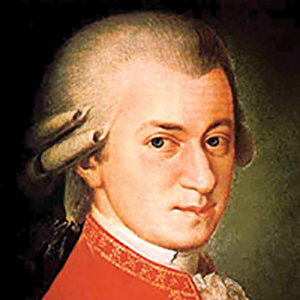
The Symphonies (The Music of Mozart)
(07/09/2013) – A presentation by W&L Professor Tim Gaylard. Timothy Gaylard is Professor of Music at Washington and Lee, where he has been a member of the faculty since 1984 and is interim Chairman of the Music Department for 2012-13. He was also Chair from 2000 until 2008, and again in 2012-2013. A native of Ottawa, Tim received his B. A. and B. Mus. degrees from Carleton University in Canada, and has associateship diplomas from the Royal Conservatory of Music. He studied at the Mozarteum in Salzburg, Austria, and obtained his M. A. and Ph. D. in musicology from Columbia University. Tim has taught in numerous Alumni Colleges and is going on his ninth program abroad in August. On that trip to the Mediterranean he will accompany Scott and Amy Williamson. He has performed extensively as a pianist in both Canada and the United States. His research interests include Mozart's influence on Beethoven, British piano music from 1800 to 1920 and, most recently, the piano music of Liszt.
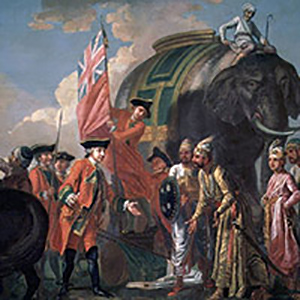
The Lion Rampant: Americans, Frenchmen, And All Sorts of Indians
A presentation by W&L Emeritus Professor Lamar Cecil. Lamar Cecil is the former William R. Kenan, Jr., Professor of History at W&L, specializing in European History. He is the author of numerous books and articles and has delivered many papers relating to the history and politics of Germany. He also has a strong interest in British monarchical history and has spent much time working in the Royal Archives at Windsor Castle. Lamar is a veteran teacher of W&L's Alumni Colleges on campus and abroad, lecturing on a variety of topics from 19th century Europe to the relationship between the U.S. and U.S.S.R. in the post-Cold War world.
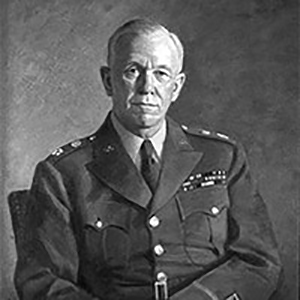
George C. Marshall and the Invasion of Europe
(07/23/2013) – A presentation by Marshall biographer Mark Stoler. Mark A. Stoler earned his B.A. at the City College of New York (1966) and his Ph.D. at the University of Wisconsin-Madison (1971). He joined the University of Vermont faculty in 1970 and became Professor Emeritus in 2007. Stoler's areas of special expertise are U.S. diplomatic and military history and World War II. Included among his many publications are "Allies and Adversaries: the Joint Chiefs of Staff, the Grand Alliance, and U.S. Strategy in World War II" (2000), "The Politics of the Second Front: American Military Planning and Diplomacy in Coalition Warfare, 1941-1943" (1977), "George C. Marshall: Soldier-Statesman of the American Century" (1989), and "Allies in War: Britain and America against the Axis Powers, 1940-1945" (2005). He also co-authored "Explorations in American History" (1987) with Marshall True, "Major Problems in the History of World War II" (2003) with Melanie Gustafson, and "Debating Franklin D. Roosevelt's Foreign Policies" (2005) with Justus Doenecke. Stoler's scholarship earned him the University Scholar Award at UVM (1993) and the Distinguished Book Award of the Society for Military History (2002); his distinguished teaching earned him the Dean's Lecture Award (1992), the George V. Kidder Outstanding Faculty Award (1984), and the Kroepsch-Maurice Excellence in Teaching Award (2006). Stoler has served as a visiting professor at the U.S. Military Academy at West Point, the U.S. Naval War College, the University of Haifa in Israel, the U.S. Military History Institute, Williams College, and Washington & Lee University. He has also produced an audio/DVD course for The Teaching Company. He is former president of the Society for Historians of American Foreign Relations (2004) and a former trustee of the Society for Military History. Currently he is serving as editor of volumes 6 and 7 of "The Papers of George Catlett Marshall" and completing a book on the World War II Combined Chiefs of Staff.